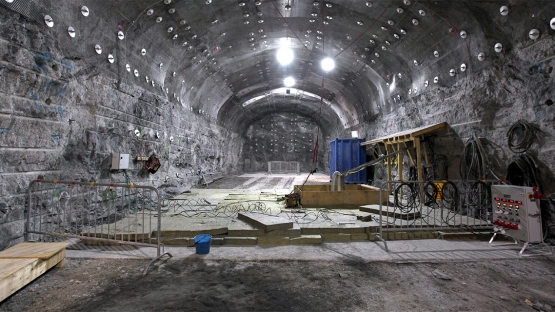After decades of prevarication, Sweden decided on a final storage plan for its nuclear waste, becoming only the second country in the world after Finland to take such a step. Permission was granted in January 2022 to build a facility to package and store spent nuclear fuel at a coastal site near the Forsmark nuclear power plant, about an hour’s drive north of the capital.
The decision is significant because it confirms Sweden’s position as a global leader in the storage of nuclear waste. Finland is the only other country to decide on such a plan and is building a storage facility at Olkiluoto, across the Gulf of Bothnia from Forsmark. Like the Forsmark project, the Finnish plan was based on a process developed by Swedish researchers.
The method — referred to as KBS3 — will see the spent nuclear fuel stored in copper containers surrounded by bentonite clay and placed in 500 tunnels that will be 500 meters under the ground. The aim is to keep the radioactive waste isolated for at least 100,000 years….But there has been criticism of the KBS3 method over recent years, including by researchers who have suggested that copper may not be as resistant to corrosion as the method assumes, meaning the risk of leaks could be higher than expected.
The approval of the Forsmark site is a big step forward in a long-running saga. Since the 1970s, Swedish authorities — like their counterparts in nuclear-power-dependent states the world over — have been seeking a solution for the final storage of nuclear waste, scouring the country for suitable sites while also tasking researchers to develop safe methods. But it took until 2011 for an application to be made by the company SKB — a nuclear waste manager owned by Swedish nuclear power producers — for planning permission at Forsmark. Since then, lengthy consultations have been held with interested parties, from scientists to residents in Östhammar municipality where Forsmark is located. The process became more politically divisive as the Green Party, which quit the government in November 2021, said the process was being rushed and more time was needed for research.
According to the Environmental Minister Strandhäll: “Today we have the knowledge and technology which means we don’t need to pass this responsibility onto our children and grandchildren,” she said. “This is a responsibility the government needs to take now.”
Excerpts from CHARLIE DUXBUR, Sweden approves nuclear waste storage site, http://www.politico.eu, Jan. 27, 2021


